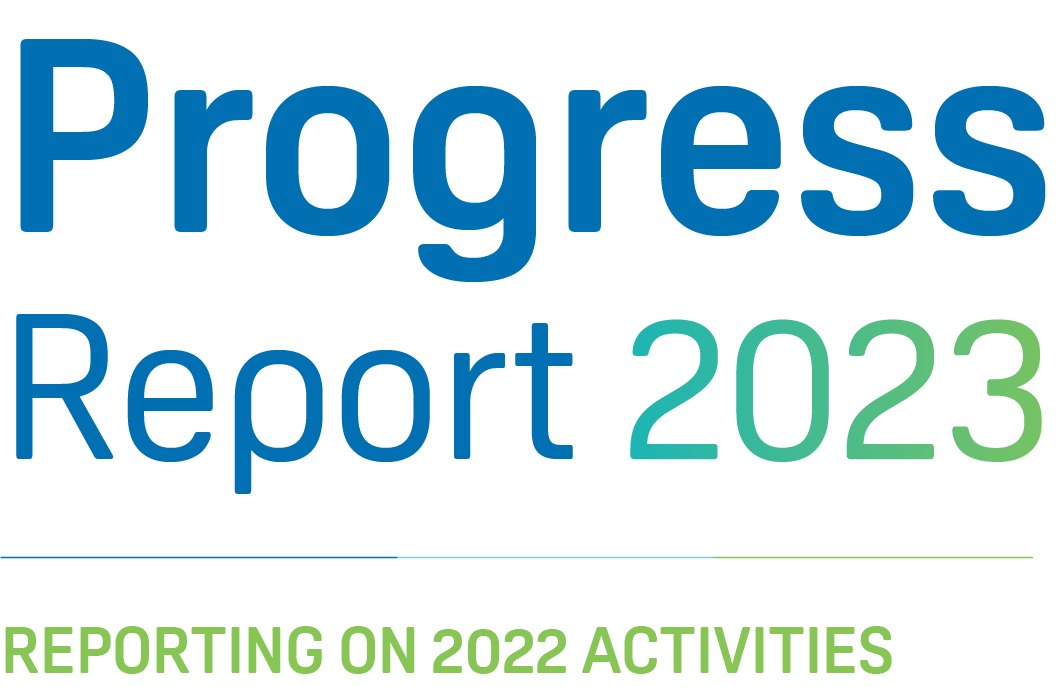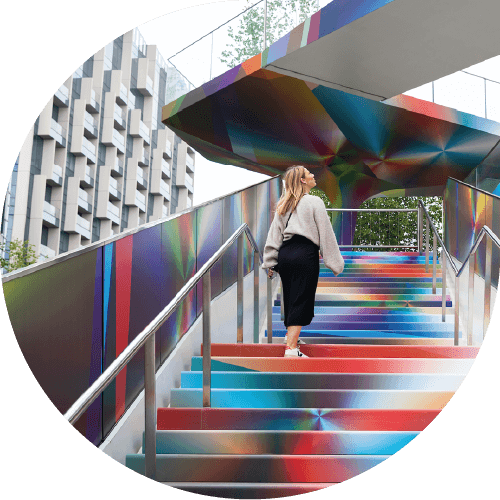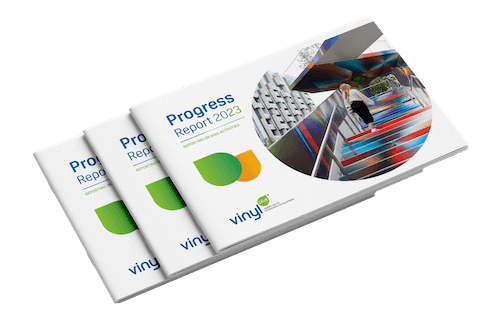

VinylPlus® is the European PVC industry’s commitment to sustainable development. Through VinylPlus, the European PVC industry is creating a long-term sustainability framework for the entire PVC value chain, improving PVC products’ sustainability and circularity and their contribution to a sustainable society. It covers the EU-27, Norway, Switzerland and the UK.
Pathway 1
Pathway 2
Pathway 3
Message from the Chairman

Dr. Karl-Martin Schellerer
"PVC, and plastics in general, have revolutionised our daily lives and nearly all industrial sectors. They have brought undeniable societal benefits in terms of health and safety, energy saving and material conservation and contributed to food availability and societal wellbeing. Their value became even more evident during the COVID-19 pandemic thanks to their role in safety devices that protected health.
At the same time, being a responsible industry, we are conscious that we have to minimise our impact on climate and the environment. We have been doing this through VinylPlus since 2000.
"PVC, and plastics in general, have revolutionised our daily lives and nearly all industrial sectors. They have brought undeniable societal benefits in terms of health and safety, energy saving and material conservation and contributed to food availability and societal wellbeing. Their value became even more evident during the COVID-19 pandemic thanks to their role in safety devices that protected health.
At the same time, being a responsible industry, we are conscious that we have to minimise our impact on climate and the environment. We have been doing this through VinylPlus since 2000.
Concern about the environmental impact of plastics is growing in Europe and the rest of the world. In March 2022, at the 5th UN Environment Assembly, governments agreed to negotiate an international legally binding instrument by 2024 to end plastic pollution, including in the marine environment. In Europe, the European Commission published its Restrictions Roadmap under the EU Chemicals Strategy for Sustainability, which resulted, among other things, in a request to ECHA in May 2022 to produce an investigation report on PVC and its additives.
We fully support a rigorous, comprehensive and science-based investigation process which takes into account the socio-economic importance of PVC. All PVC industry sectors have worked hard to contribute to ECHA’s calls for evidence with validated information and scientific studies. We look forward to continuing to work with ECHA and the European Commission in a science- and risk-based framework. We are convinced that the work we have been carrying out for over 20 years to make the PVC industry and its products more sustainable is concrete proof of our permanent engagement.
As you will read in this Progress Report, we invested a lot of effort and resources into our Pathway 1 in 2022, as we recognize that a prerequisite for any material to have a sustainable future is that it be handled in a circular manner. A lot has been done, and in Europe, PVC applications are more sustainable and safer than ever, and will continue to be so in the future, thanks to tools we have developed, such as for example the Additive Sustainability Footprint® methodology. This allows us to evaluate the safe and sustainable use of additives also from a forward-looking perspective, and we hope it will be taken up as a model by other industries.
Moreover, in all these years we have provided, through in-depth research including numerous studies, the broadest guarantees that recycled PVC can be used without making a compromise in matters of health and safety of users and consumers.
We are also investing heavily in research and development projects aimed at removing legacy additives from waste, increasing chemical recycling and extracting and exploiting waste-to-energy by-products for the parts of PVC waste that cannot be mechanically recycled in an eco-efficient manner.
Throughout 2022 all VinylPlus committees worked hard to progress towards the targets set in our VinylPlus 2030 Commitment. We kicked off a series of initiatives aimed at supporting our companies’ efforts in reducing water and energy consumption, increasing the use of renewable energy and raw material, and minimising any accidental spillage of PVC into water and the environment.
We have continued our path towards sustainable development through certified and traceable products by updating our VinylPlus® Product Label, which has been included in procurement systems in Belgium and Italy. In addition, five companies have obtained our VinylPlus® Supplier Certificates.
I would like to underline the success of projects such as VinylPlus® Med, for the recycling of medical devices, and Garden to Connect, which promotes the reuse of PVC waste and has been extended to Rwanda. Both have proven to be effective initiatives to build partnerships and engaging stakeholders. We have also continued to engage with younger generations and civil society through partnerships in sports events.
Beyond the targets of our 2030 Commitment, we are facing uncertainties over the evolution of the EU regulatory framework. We are committed to working collaboratively and transparently with regulators to ensure our industry can achieve its sustainable transition and that PVC continues to be a building block of our societies. Along with high sustainability ambitions, EU regulators have made commitments for the competitiveness of the European industry. These commitments are key, as providing regulatory predictability and a fair regulatory framework is essential to boost innovation and reach the EU’s goals."

